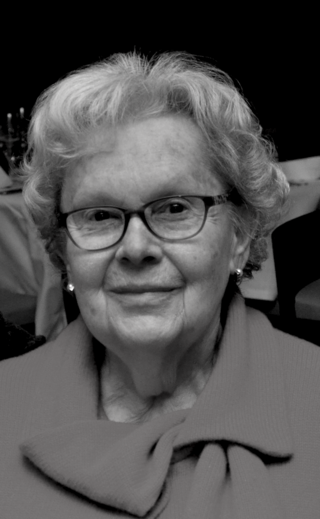This article needs additional citations for verification .(May 2014) |

Pierre Rousselot (29 December 1878 Nantes - 1915) was a French Jesuit and author of the controversial Les yeux de la foi. He was also a great influence upon Henri de Lubac.
This article needs additional citations for verification .(May 2014) |

Pierre Rousselot (29 December 1878 Nantes - 1915) was a French Jesuit and author of the controversial Les yeux de la foi. He was also a great influence upon Henri de Lubac.
Born at Nantes, France, Rousselot entered the Society of Jesus in October 1895. He was ordained priest on 24 August 1908 at Hastings. The same year he had obtained a doctorate for two theses presented to the Sorbonne: L'intellectualisme de saint Thomas and Pour l'histoire du probleme de l'amour au Moyen Age. In November 1909 he entered the Institut Catholique at Paris; he was given the chair of dogmatic theology in the following year, which he occupied till he was called to military service in 1914, apart from a year (1912–13) spent in England. He was killed in battle at Éparges, on 25 April 1915, aged 37. [1]
Rousselot's L’intellectualisme de saint Thomas drew attention to the continuing vitality in Thomas’ synthesis of Christian Platonism. [2]
Rousselot suggested a new concept of revelation: that revelation be conceived not as a sum total of distinct truths, propositions, judgements, but as a kind of knowledge that is indefinitely cashable (monnayable) in distinct ideas and propositions which explicitate it without being able to exhaust it, and without claiming to supplement it. Revelation, he proposed, was the living and loving knowledge that the apostles had of Jesus. The mode in which the many dogmas are precontained in the single changeless knowledge which is the apostolic deposit is not logical, but Christological. [3] De Lubac's contribution to the question of doctrinal development is largely a restatement of that of Rousselot, whose papers he studied and published.
Étienne Henri Gilson was a French philosopher and historian of philosophy. A scholar of medieval philosophy, he originally specialised in the thought of Descartes; he also philosophized in the tradition of Thomas Aquinas, although he did not consider himself a neo-Thomist philosopher. In 1946 he attained the distinction of being elected an "Immortal" (member) of the Académie française. He was nominated for the Nobel Prize in Literature.

Henri-Marie Joseph Sonier de Lubac, better known as Henri de Lubac, was a French Jesuit priest and cardinal who is considered one of the most influential theologians of the 20th century. His writings and doctrinal research played a key role in shaping the Second Vatican Council.
Jean Guitton was a French Catholic philosopher and theologian. Le Monde called him "the last of the great Catholic philosophers."
Joseph Héliodore Sagesse Vertu Garcin de Tassy was a French orientalist.

Henri Brémond was a French literary scholar and philosopher, Catholic priest, and sometime Jesuit. He was one of the theological modernists.

Jean-Guenolé-Marie Daniélou was a French Jesuit and cardinal, an internationally well known patrologist, theologian and historian and a member of the Académie Française.

Nicolas Chorier was a French lawyer, writer, and historian. He is known especially for his historical works on Dauphiné, as well as his erotic dialogue called The School of Women, or The Seven Flirtatious Encounters of Aloisia.
Pierre Lasserre (1867–1930) was a French literary critic, journalist and essayist. He became Director of the École des Hautes-Études.

Jean Paul Louis François Édouard Leuge-Dulaurier was a French Orientalist, Armenian studies scholar and Egyptologist.

Antonin-Gilbert Sertillanges, O.P., was a French Catholic philosopher and spiritual writer.

Thierry Sandre was a French writer, poet, essayist. He won the Prix Goncourt in 1924 for Le Chèvrefeuille.
Émile Poulat, was until 1954 a Catholic priest, associated with the Prêtres Ouvriers movement, and thereafter a French historian and sociologist. Director of Studies at the École des hautes études en sciences sociales, he was also director of research at CNRS and historian of the contemporary church. He was a founding member of the Group of Sociology of Religion, director and member of the editorial boards of several journals including Politica Hermetica. His research concentrated on the conflict between Catholic culture and modern culture in the history of contemporary Catholicism.

Xavier Tilliette was a French philosopher, historian of philosophy, and theologian. A former student of Jean Wahl and of Vladimir Jankélévitch, he was a member of the Society of Jesus (1938) and professor emeritus at the Catholic Institute of Paris (1969), having taught also at the Pontifical Gregorian University of Rome (1972), the Lateran University, and the Centre Sèvres in Paris.
Thomas De Koninck is a philosopher from Québec.
Henri Bouillard (13 March 1908 – 22 June 1981) was a French Jesuit theologian.

Benoît Lacroix was a Quebec theologian, philosopher, Dominican priest, professor in medieval studies and historian of the Medieval period, and author of almost 50 works and a great number of articles.
The prix Broquette-Gonin was a former prize awarded by the Académie française.

Ilsetraut Hadot in Berlin, is a philosopher and historian of philosophy who specialised in Stoicism, Neoplatonism and more generally in Ancient Philosophy.
The Prix Bordin is a series of prizes awarded annually by each of the five institutions making up the Institut Français since 1835.
The Prix Juteau-Duvigneaux of the foundation of the same name, was an annual prize in philosophy awarded by the Académie française. Starting in 1896, it was awarded to the author or authors of works in Ethics, especially from the Catholic point of view.